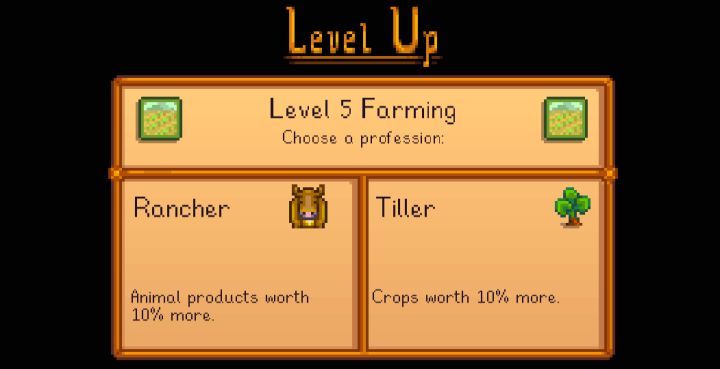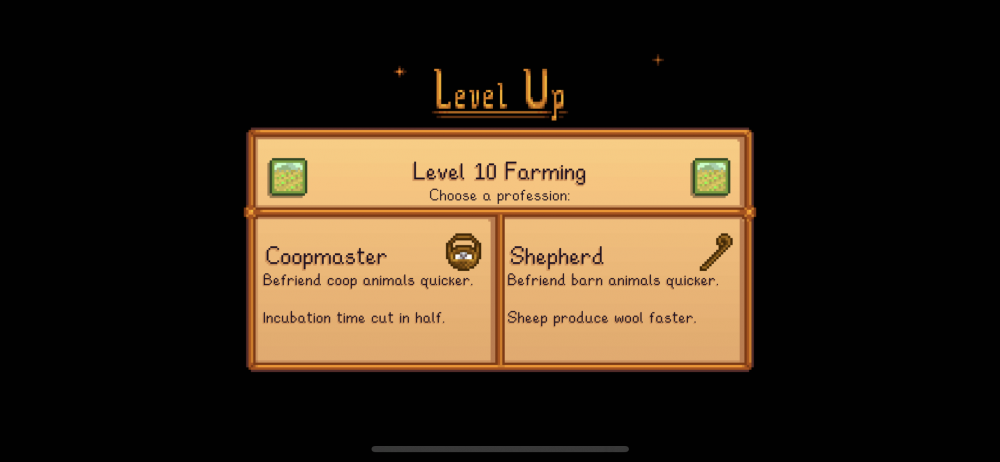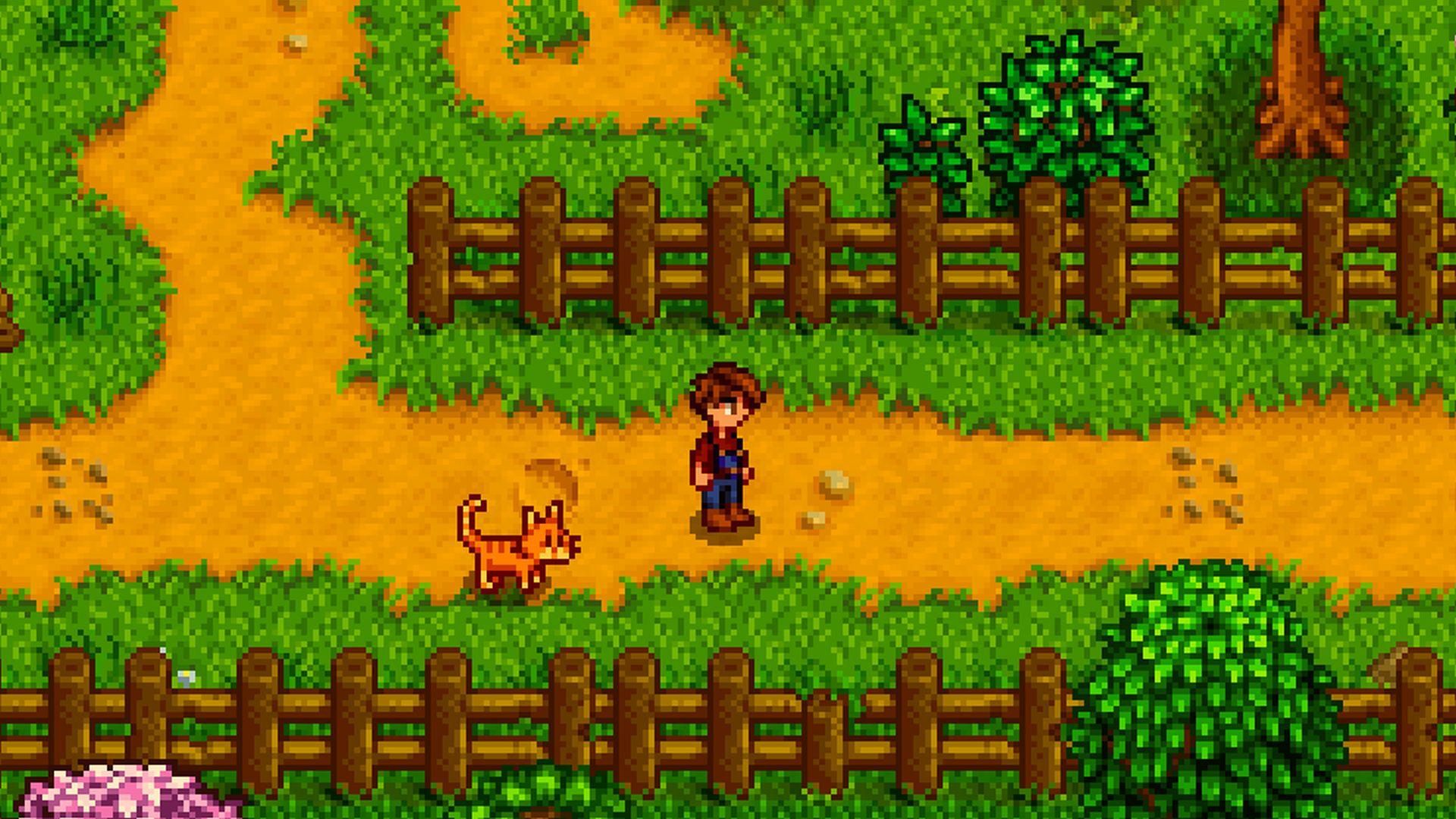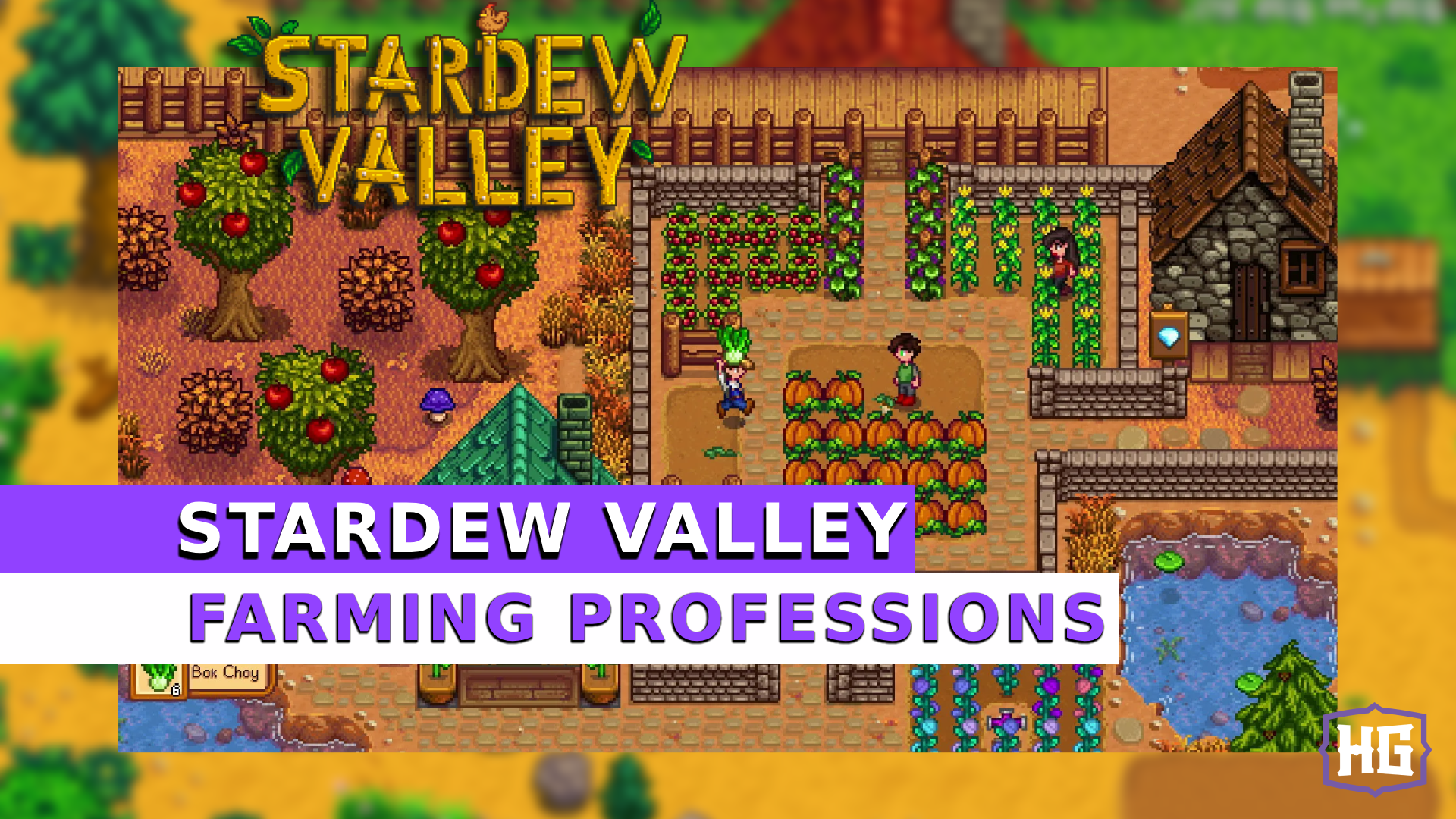Summary
- Choosing Tiller at Level 5 boosts crop sales by 10%, including fruit and flowers but excluding certain items.
- Artisan at Level 10 elevates artisan goods value by 40%, maximizing profit and laying a foundation for economic prosperity.
- Shift between Professions with the Statue of Uncertainty for 10,000g to adapt strategies and optimize success.
Hello, Farmers!
In Stardew Valley, farming skill is a testament to your connection with the earth. It encompasses all aspects of agronomy, from the whisper of seeds in the soil to the care of animals and the crafting of artisan goods. As you delve deeper into the pastoral symphony of farming, each level gained is a step closer to agricultural mastery. The delicate dance of watering, tilling, and harvesting becomes more efficient with every skill level, reducing the energy expenditure of essential tools like the Watering Can and the Hoe. This not only preserves your much-needed stamina for the long days on the farm but also allows you to expand your agricultural empire with less fatigue.
The journey of a farmer is marked by significant milestones, particularly at Levels 5 and 10, where the path diverges, offering choices that shape the essence of your farming philosophy. These pivotal moments present you with professions and specialized paths that further refine your skills and offer unique bonuses. The decision is not to be taken lightly, as each profession opens new avenues of efficiency, profitability, and interaction with your environment.
Navigating these choices can be daunting, as the benefits of each profession resonate differently with every farmer's goals and playstyle. Whether you envision a verdant expanse of crops stretching to the horizon or a bustling hub of artisanal production, understanding the nuances of these professions is key to realizing your vision. In this guide, we will delve into the details of each profession, comparing their bonuses and offering insights to help you tailor your farming strategy to your aspirations, ensuring that your farm not only thrives but becomes a legend in the valley. Let's get into it.
All Farming Professions and What They Do in Stardew Valley
|
Level 5 |
Details |
Level 10 |
|---|---|---|
|
Rancher |
Rancher can become either a Coopmaster or a Shepherd at level 10. Animal products sell for 20% more gold. |
Coopmaster:
Shepherd:
|
|
Tiller |
Tiller can become either an Artisan or an Agriculturalist at level 10. Crops sell for 10% more gold. |
Artisan:
Agriculturalist:
|
Level 5 Choices: Rancher vs. Tiller

Rancher
Embracing the life of a Rancher steers you towards a deeper bond with your farm animals. Opting for this profession means every quack, moo, and baa translates into a 20% increase in profits from raw animal products such as Eggs, Milk, and Wool. This enhanced profitability extends to artisan goods derived from these items, including Mayonnaise and Cheese, bolstering your farm's economy with every sale. Notably, Dinosaur Eggs, despite their artifact status, also enjoy this price uplift, whereas Truffles, curiously categorized as foraged items, do not. This profession enriches your farm with a diverse range of valuable animal products, from Duck Feathers to Rabbit's Feet.
Tiller
On the other hand, the Tiller profession cultivates your green thumb, rewarding your efforts with a 10% bonus on crop sales. This bonus intricately weaves through the fabric of what constitutes a 'crop,' applying to fruit harvested from trees and those grown from seeds, alongside select foraged flowers like Crocus and Sweet Pea. However, the waters of eligibility are muddied by exclusions such as foraged Grapes and fruit from the Fruit Cave, challenging farmers to navigate the nuances of what falls under the Tiller's bounty.
Level 10 Choices: Coopmaster, Shepherd, Artisan, Agriculturalist

As your farming expertise flourishes, reaching Level 10 unveils another crucial decision point, further defining your agricultural identity based on your initial choice.
If Rancher was Chosen:
- Coopmaster: Specializing as a Coopmaster turns your attention to the feathered and fluffy residents of your Coops. This profession not only strengthens your bond with these animals faster but also hastens the hatching process of eggs in incubators. An unspoken benefit is the increased likelihood of higher-quality products from these coop dwellers, adding a layer of value to your farming operations.
- Shepherd: Choosing the path of the Shepherd focuses your efforts on the larger Barn dwellers. Similar to the Coopmaster, this profession enhances your rapport with these animals and increases the quality of their products. Unique to Shepherds, however, is the accelerated frequency of Wool production from Sheep, weaving a fabric of efficiency and profitability into your barn activities.
If Tiller was Chosen:
- Artisan: The Artisan profession is a cornerstone of economic prosperity in Stardew Valley, elevating the value of all artisan goods by 40%. This considerable increase applies to a wide array of products, from Wine and Cheese to Pale Ale, catapulting your farm's revenue to new heights. The allure of building an empire on artisan goods makes this profession a popular and lucrative choice.
- Agriculturist: For those who remain true to the soil, the Agriculturist profession accelerates crop growth by 10%, a boon to those looking to maximize harvest cycles. However, the availability of fertilizers that replicate this effect makes Artisan the more enticing option for many, as the economic benefits far outweigh the time saved in crop cultivation.
The Statue of Uncertainty, nestled in the mysterious depths of the Sewers, offers a unique avenue for strategic adaptability, allowing farmers to change their professional focus for a fee of 10,000g.
In Stardew Valley, the path you carve through your farming choices weaves a narrative of personal connection to the land and its inhabitants. Whether nurturing a menagerie of animals as a Rancher or tending to a sea of crops as a Tiller, your decisions at Levels 5 and 10 shape the rhythm of rural life. As you weigh the merits of each profession, consider not only the immediate benefits but also the long-term vision for your farm. Stardew Valley is a canvas of agricultural possibilities, and your choices paint the picture of your unique farming legacy.
Which is the Best?
At the beginning of your farming venture, when the fields are freshly plowed and the future is a canvas of possibility, you're going to have more crops than you are animals. The Tiller profession amplifies this potential, offering a 10% price increase on crops sold, a boon that cannot be understated. This early advantage is crucial for a few reasons:
- Reliability and Scalability: Crops offer a steady, scalable source of income. With each seed sown, your potential harvest grows, limited only by your capacity to plant, water, and harvest. Unlike animal products, which are constrained by the number of animals you can sustain and their individual production rates, crops can be expanded rapidly with the acquisition of more seeds and land.
- Foundational for Artisan Goods: The early investment in crops paves the way for a future rich in artisan goods. The raw materials harvested from these crops form the backbone of the artisan products that will later define your farm's economic landscape.

The Artisan Advantage
As seasons turn and your farming skills deepen, the Artisan profession stands as a beacon for those seeking the pinnacle of agricultural profit. By choosing Artisan, the value of your artisan goods—ranging from Wine and Cheese to Truffle Oil and Pale Ale—soars by an impressive 40%. A few key considerations underpin this leap in profitability:
- Maximizing Raw Goods: The average farm in Stardew Valley gradually evolves to produce a plethora of raw goods, ripe for transformation into artisan products. The Artisan profession ensures that this transition from raw to refined not only enhances the value of these goods but also cements your farm's economic dominance.
- Long-Term Investment: The trajectory from Tiller to Artisan is a testament to the long-term vision required for farming success. This path acknowledges the foundational importance of crop production while setting the stage for a diversified farm that thrives on both crop cultivation and the production of high-value artisan goods.


